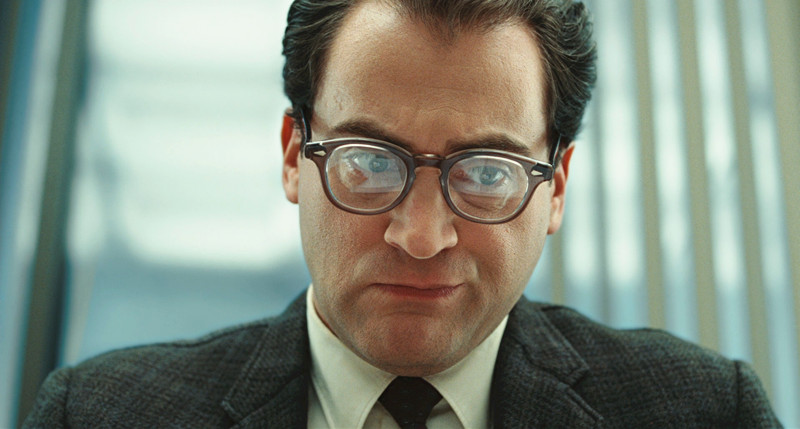
Earlier in the 20th century, a new genre of literature became very popular in western Europe, especially France. Writers like Jean-Paul Sartre and Albert Camus began to write about themes like human existence and its crisis, and it was called existentialism, a philosophical theory and an approach that emphasizes the existence of the individual person determining its own development and destiny.
However, when one questions his or her own existence and meaning of life, it merely simplifies the existential crisis. That was the main topic to write about for Sartre, even though he stated that he is not an existentialist. His work has not only influenced sociology, colonial and post-colonial theories, but he also left his mark on cinema. He had an open relationship with the prominent feminist theorist Simone de Beauvoir, and together they challenged the cultural and social expectations of their upbringings, which was considered a bourgeois lifestyle.
He is mostly known for his works, such as “Existentialism and Humanism” (1946). The first period of Sartre’s career was largely defined by “Being and Nothingness” (1943), which gave way to a second period, when the world was split into two sides, communists and capitalists.
His primary idea is that people are “condemned to be free”, as already mentioned above, meaning that there is no creator. Sartre said that humans have no essence before their existence because there is no creator, thus “existence precedes essence.”
With that being said, below are 15 films that carry Sartre’s philosophy, that have a concept of existential issues, such as depression, one’s will to be free, and the meaning of life.
15. Ex Machina (2015)
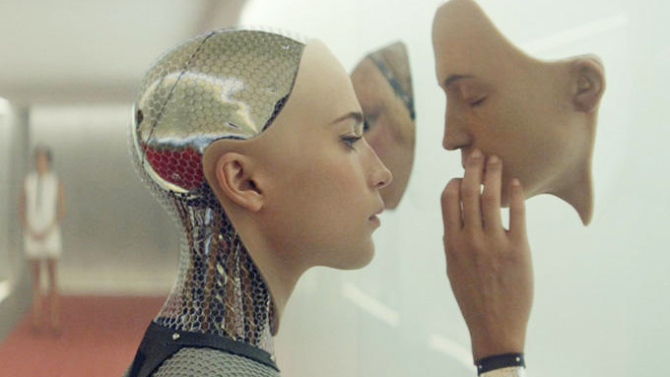
This film was never meant to be ordinary and it probably did meet the expectations, as it was shortlisted at the Oscars for Best Visual Effects. It was also nominated for Best Original Screenplay.
Alex Garland’s sci-fi drama includes Alicia Vikander as what many of you would call a robot, but Ava is a humanoid A.I (Artificial Intelligence). The scientist, Nathan, has chosen a programmer named Caleb to visit his sprawling home in the forest. Underneath his mansion is a laboratory where he keeps Ava, his newest female creation.
Therefore, Caleb must interact with her for some time and afterwards determine if Ava truly has self-awareness. The interesting thing about this film is that there are only two human beings in it; the rest of the characters are artificial intelligence. Caleb encounters many strange things during his stay with Nathan; he finds out that Nathan is keeping secrets from him and everything is not as simple as he first thought.
The story questions the meaning of life and what is real and what is not. The visual part of the films is simply stunning as the director managed making mirrors a crucial part of the film, as it represents Ava’s existence and the reflection of mankind.
14. Leviathan (2014)

Andrey Zvyagintsev delivers a stunning and clear example of a theocratic country like Russia, and it is truly one of the most important movies that has been recently made in the post Soviet Union world. What makes the film so bold and cautious is that it clearly shows and reflects the pervasive political views and actions that take place under Vladimir Putin’s reign. It carries more of an allegoric message to the viewer; the film has actual biblical references, as well as Thomas Hobbes’ “Leviathan”.
The main character, as we begin the film, is Kolya (Alexey Serebryakov), who lives with his family on a small land parcel that is wanted by the town mayor, but Kolya has lived there his entire life, and his father’s father’s father has owned the land and the house for a very long time.
Kolya refuses to give up the land, and he calls up his friend Dmitri (Vladimir Vdovitchenko) who is a lawyer having an affair with Kolya’s wife. The film is filled with lots of drinking, arguments and swearing, which is not a strange thing in Russia, but seeing Kolya getting drunk all the time, and him losing against the mayor, makes the film very depressing.
Until the end, Kolya seems to be a protagonist, and viewers have empathy toward him, but in the end it seems that there are no protagonists or positive characters. Political corruption in the country is seen in the film not only because the mayor wants a land that does not belong to him, but also Lenin’s statue in front of the court and Putin’s picture glaring from the mayor’s office wall makes that communist feeling much more close and realistic.
Characters encounter existential crises through the entire film as Lilya (Kolya’s wife) commits suicide in the prologue of the film, and viewers may argue about what her motivation was. The fact that mayor got what he wanted also probably meant that truth doesn’t always win.
13. Shame (2011)
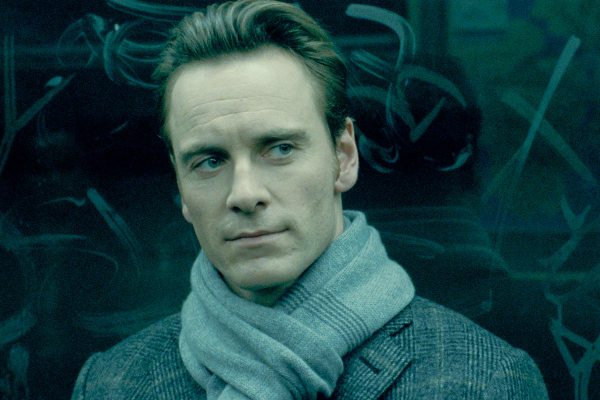
The iconic pairing from Steve McQueen and Michael Fassbender turns out to be in “Shame”, as Fassbender delivers an outstanding performance of a man in his early 30s who clearly has a sexual addiction, as well as living with depression and suffering from an existential crisis.
Brandon wakes up every morning in his apartment in the Big Apple, with a different woman every day with whom he pays to have sex. He lives alone and every day ignores his sister’s calls. One day, she comes to his apartment, which spurs Brandon to change his lifestyle.
As we explore the dark corners of a man, we encounter the apathy and nihilism that consumes Brandon and directs his inadequate behavior, choices and actions towards his co-workers and family. Brandon finds himself hopeless and a victim of his own poor life choices, as well as his wrong priorities.
12. A Serious Man (2009)
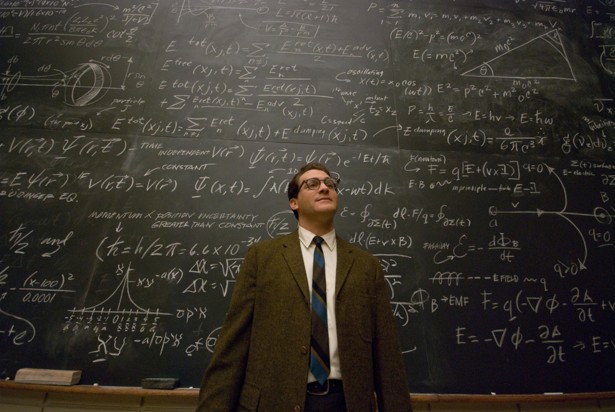
Ethan and Joel Coen are probably some of few directors that everyone admires and has next to no criticism towards their films. Their film, “A Serious Man”, raises many philosophical topics and also brings up the most important question: the meaning of life. Larry Gopnik (Michael Stuhlbarg) is a physics teacher who comes from a Jewish family and appears to have lots of issues with his wife, who wants a divorce. Looks like Larry’s life is about to fall apart.
It is a clear biblical reference, as it is very similar to the life of Job of the bible. His son only cares about smoking weed, and after the divorce, Larry’s wife empties his bank account and he is forced to live in a motel with his brother. Larry’s life is merely a struggle and hypothetically he has to pass a test from God, whilst remaining faithful to his beliefs.
11. Being John Malkovich (1999)
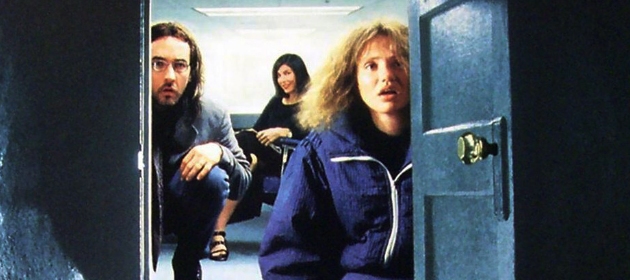
Back in the day, when questioning reality was normal, and when everything seemed quite unstable as it was the end of the century, Spike Jonze shot a movie about John Malkovich, a very famous actor.
Craig Schwartz (John Cusack) is an average puppet artist who is currently unemployed and has to support his wife, Lotte (Cameron Diaz). He starts working at a strange company where he finds a strange portal that leads literally through Malkovich’s head. He actually sees through the eyes of Malkovich, but the time in Malkovich’s head is limited so he starts making money from it, as everyone wants to be in his head.
It is clear that Craig and everyone else are having existential crises because everyone enjoys being in someone else’s mind, seeing things from someone else’s eyes, as they hate the life they live. It’s more like voyeurism; spying on someone else living their life, especially their sexual acts.
The film shows how estranged the so-called first class famous people are, as well as the normal, average people. It seems that they share the same reality, but from different points of view.
10. Taste of Cherry (1997)
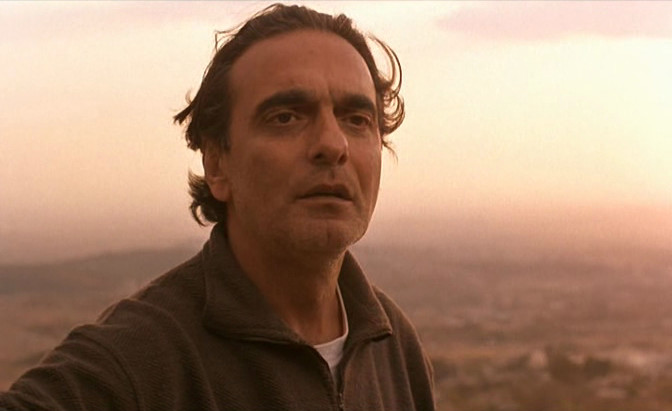
This is probably Abbas Kiarostami’s best film; it questions the meaning of life as the main character, the middle-aged Mr. Badii (Homayoun Ershadi), wants to commit suicide, but needs help from someone else. Someone who will quietly bury him under the cherry tree after his death. He drives his truck around Iran, in search of someone who will do the job, but everyone he meets refuses to do it.
Some try to convince him that life is beautiful and suicide is just a weakness. He meets different kinds of people, young Kurd soldiers, Afghan seminaries, but soon he finds a Turkish taxidermist who has a sick son and who earlier tried to commit suicide himself, so he agrees to assist Badii in his deed.
This film is not just about life and death and the meaning of life, but also a person’s will to die because can’t find interest in life. It’s astonishing how calm and self-confident Mr. Badii is, and how he does not even consider changing his mind. He has a good family, has lived a good life, has earned lots of money, but is fed up with everything. During his search of an assistant, he meets people with different moral reasons for helping or not helping him, as he has personal morals and reasons why he wants to die.
9. Blow Up (1966)
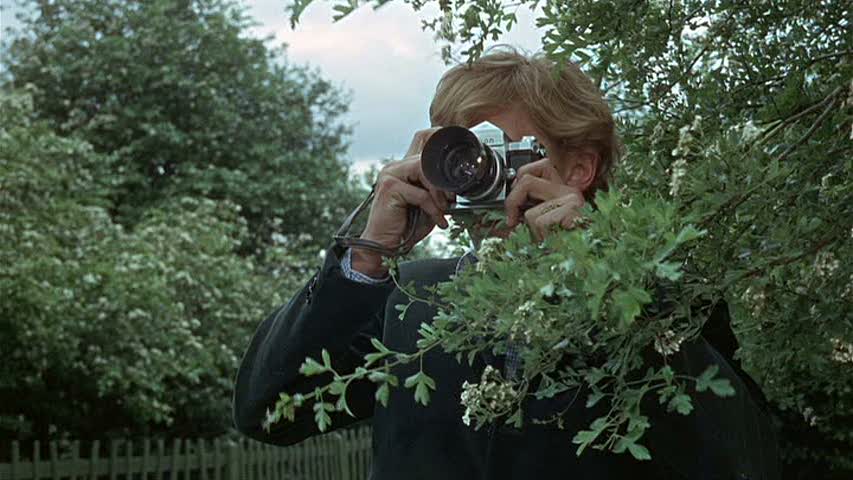
This film is Michelangelo Antonioni’s first English language film, which takes place in London. Thomas is a young photographer and his main interests are pop music, sex, fashion, and drugs.
One day he goes to the park and takes a picture of a man and a woman. That woman follows him to the studio, because she wants the photos back, and does everything to take away these photos from Thomas, but after blowing up the images, he finds out that he somehow took a picture of an actual or attempted murder. After seeing these blown-up negatives, he finds himself in a kind of strange situation, because he can’t believe if the events really took place and that triggers his belief in reality.
He goes back to the park and sees a dead body, but many writers and viewers think that Thomas is unsure if he really sees the body. A bunch of college kids play tennis with an imaginary ball in the final scene, but Thomas appears to have seen the ball. It is hard to tell what is real.